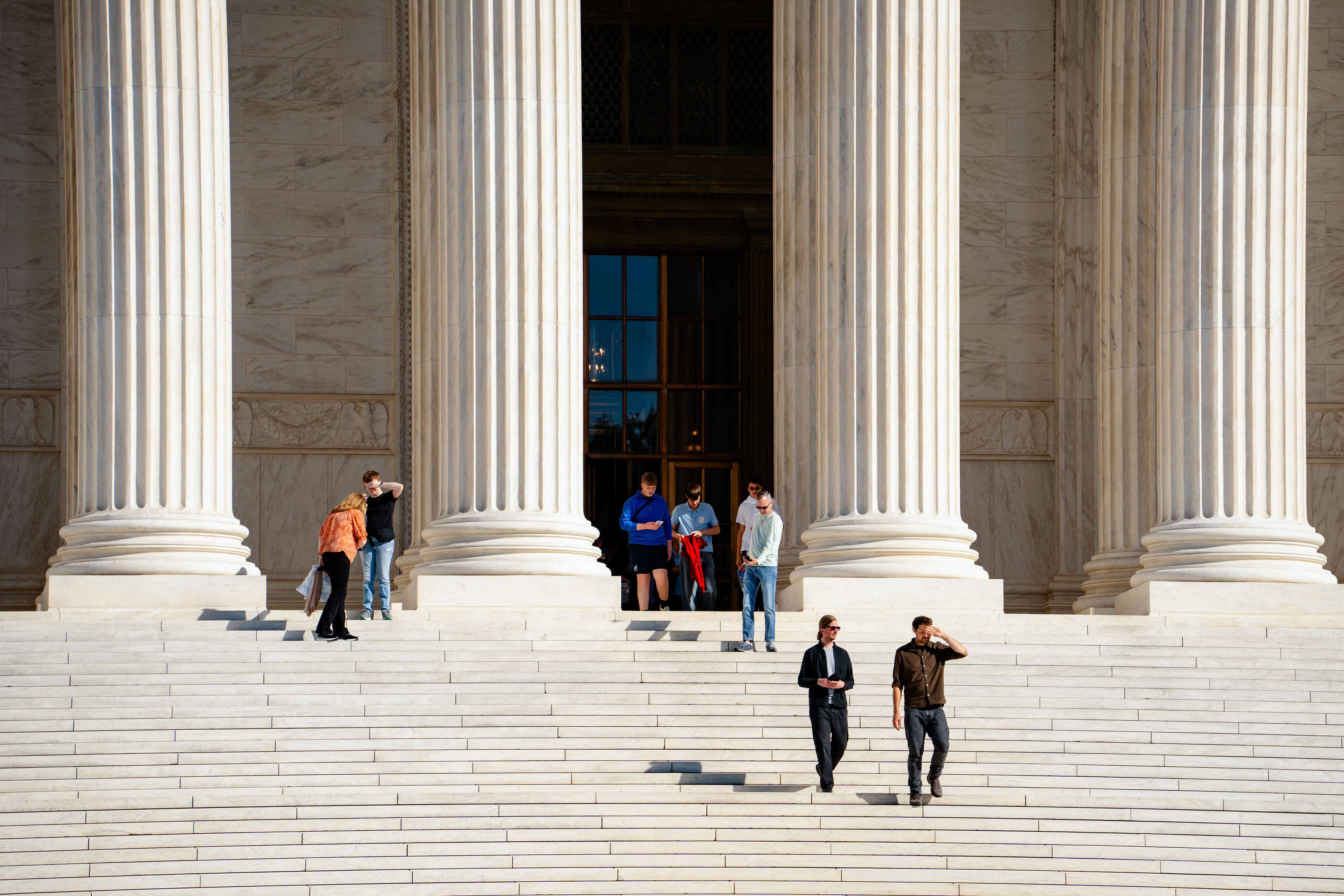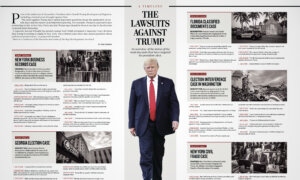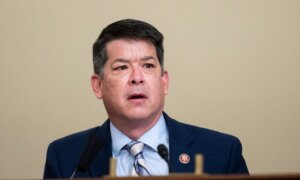The U.S. Supreme Court is set to hear oral argument on Dec. 4 in a major case that could alter how courts apply the Constitution and view legal disputes over social issues involving gender.
In U.S. v. Skrmetti, U.S. Solicitor General Elizabeth Prelogar is asking the high court to review an appeals court decision upholding Tennessee’s prohibition on so-called gender-affirming care for minors. Tennessee’s law forbids certain medical procedures, including surgeries, as well as administering hormones and puberty blockers.
The Supreme Court has agreed to take up the question of whether that law violates the Equal Protection Clause of the 14th Amendment.
The U.S. Court of Appeals for the Sixth Circuit had halted a district court’s injunction, which blocked the portion of Tennessee’s law pertaining to hormones and puberty blockers. However, it said the plaintiffs didn’t have standing to challenge the ban on surgeries. Prelogar’s request is to review the appeals court decision and said the ban on surgical procedures “is not at issue” in her petition to the court.
Tennessee and other states have maintained that such medical procedures are dangerous and don’t have a solid basis in science. Prelogar has argued that Tennessee’s law constitutes sex-based discrimination and violates the equal protection clause of the 14th Amendment, which generally ensures states provide equal protection to all people within their respective jurisdictions.
The case follows a 2023–2024 term full of major decisions that touched on hot-button issues such as abortion, presidential immunity, and government regulation, percolating in the lower courts and inflaming national debate.
One issue was notably absent from the high court’s docket: the nation’s ongoing debate over gender and how the law views biological sex. The court denied, for example, a petition to review a lower court’s order blocking an Indiana school district’s restriction on boys using girls’ bathrooms.
“I’m guessing what they’re doing here is saying ‘let’s let this percolate,’” Judicial Crisis Network President Carrie Severino told The Epoch Times in May. She suggested the justices were letting what’s known as a circuit split develop. That occurs when two or more courts of appeals issue conflicting holdings about a particular legal question.
For U.S. v. Skrmetti, Prelogar said a circuit conflict was “emerging” on medical procedures as various district courts were considering the issue. She added that splits had emerged on related issues like whether laws targeting gender identity constituted a form of sex discrimination or warranted tougher scrutiny under the 14th Amendment.
Severino added that “there are some benefits to having well-thought-out litigation on both sides and smart lawyers, smart judges, having weighed in on the issue multiple times, because you can get some different perspectives.”
The high court now has a slate of lower court decisions on medical treatment, women’s sports, and other issues to review. In doing so, it will likely weigh in on how laws targeting gender identity interact with the equal protection clause, anti-discrimination law, and the court’s own precedents.
Equal Protection Clause
Legal challenges surrounding these issues have underscored the stakes involved over how U.S. courts view the Constitution and civil rights law, and they often culminate in disputes over the 14th Amendment.The amendment was initially passed in response to Reconstruction-era attempts to discriminate against freed slaves. It has since been applied, however, in the debate over a variety of state-level restrictions including on speech and abortion.
The federal government has suggested that “transgender persons” should be considered a “quasi-suspect” class; in other words, one that receives heightened legal protection under the equal protection clause.
By contrast, the U.S. Court of Appeals for the Sixth Circuit disagreed and instead afforded more deference to Tennessee in deciding whether to ban these types of procedures for minors.
Oral arguments in December will likely feature a discussion about the reliability of the evidence used to support these procedures. Part of evaluating claims like those brought under the equal protection clause involves weighing the arguments against state interests.
Tennessee Attorney General Jonathan Skrmetti told the Supreme Court in February: “Tennessee’s law serves governmental interests that are not just important, but compelling. And its prohibition of these risky and potentially irreversible medical interventions for minors was substantially related to the achievement of its goals.”
On the other side, movie star Elliot Page and others have filed amicus briefs promoting the idea that “gender-affirming care” is beneficial.
Prelogar has attempted to support these procedures by citing the World Professional Association for Transgender Health (WPATH) and the Endocrine Society and by stating that many major medical and mental health organizations follow their guidelines.
WPATH, which describes itself as “devoted to transgender health” and developing “evidence-based medicine,” has been subject to considerable criticism. Skrmetti’s brief to the justices accused WPATH of advancing low-quality evidence while Alabama’s amicus brief, which supported Skrmetti in the case, focused almost entirely on the organization.
Potential Outcomes
It’s still unclear how the Supreme Court will rule in U.S. v. Skrmetti and other gender-related lawsuits in the coming term.The ideological clash over gender has erupted in various ways, including controversies over school curricula, schools socially “transitioning” students without parental consent, bathroom policies, speech codes requiring individuals to use preferred pronouns, state support for surgical procedures, and the issue of biological males playing in women’s sports.
“Gender identity touches a multitude of different societal avenues, and we’re only going to see that increase until and unless the Supreme Court weighs in with some clarity,” Sarah Marshall Perry, a senior legal fellow at conservative think tank The Heritage Foundation, told The Epoch Times.
Chief Justice John Roberts’s court has generally been perceived as favoring an incremental approach to deciding issues. The court’s opinion, however, could include language that bears on legal challenges to other topics related to gender identity. It could also change the way courts view sex-based discrimination, as well as distinctions between sex and gender identity.
A good indication of potential rulings can come from previous ones. Justice Neil Gorsuch’s 2020 opinion in Bostock v. Clayton County, which received support from Roberts, Justices Sonia Sotomayor and Elena Kagan, and now-retired Justice Stephen Breyer, may be one such case.
In that case, the court held that Title VII of the Civil Rights Act, which prohibits sex-based discrimination by employers, applied to gender identity and sexual orientation.
Justices Samuel Alito, Clarence Thomas, and Brett Kavanaugh each dissented, and Kavanaugh wrote a separate opinion from the other two. Alito said that Gorsuch’s opinion would have implications for many areas of law, including religious liberty, health care, free speech, and other constitutional claims.
“Although the Court does not want to think about the consequences of its decision, we will not be able to avoid those issues for long,” Alito wrote. “The entire Federal Judiciary will be mired for years in disputes about the reach of the Court’s reasoning.”
Taking Stock of Bostock
Gorsuch’s opinion said that the textual approach to Title VII supported the conclusion that employment discrimination was sex-based, and violated Title VII, if the decision would not have been made but for an individual’s sex.“An employer who fires an individual for being homosexual or transgender fires that person for traits or actions it would not have questioned in members of a different sex,” his majority opinion read.
It included a provision, however, purporting to limit the 2020 decision to Title VII and indicated religious organizations could be exempt in future cases.
“[W]hile other employers in other cases may raise free exercise arguments that merit careful consideration, none of the employers before us today represent in this Court that compliance with Title VII will infringe their own religious liberties in any way,” he wrote.
So far, multiple courts have used this reasoning to affirm gender-related arguments outside of Title VII despite the majority’s attempt to confine the decision to employment-related questions involving that statute. For example, the U.S. Court of Appeals for the Fourth Circuit used Bostock to argue that West Virginia and North Carolina violated the equal protection clause by not providing “gender-affirming care” under state health plans.
By contrast, the Sixth Circuit upheld Tennessee’s law on surgeries while stating that Bostock applied only to Title VII.
The U.S. Court of Appeals for the Ninth Circuit has held that Bostock supports an equal protection claim for biological males to participate in women’s sports. That decision is currently being challenged by the state of Idaho, which filed a petition in July requesting the Supreme Court’s review.
In asking the Supreme Court to review that decision, Prelogar challenged the Sixth Circuit’s interpretation of Bostock. She suggested Gorsuch’s opinion supported a challenge to the law based on the Equal Protection Clause of the 14th Amendment.
“Bostock’s core insight is that ‘it is impossible to discriminate against a person for being ... transgender without discriminating against that individual based on sex,’” she said, adding that Bostock’s reasoning was just as sound in the equal protection context.














